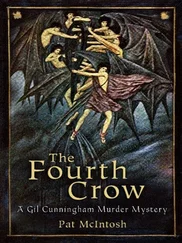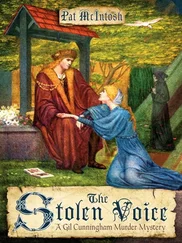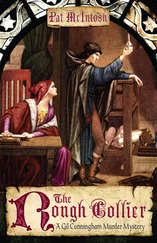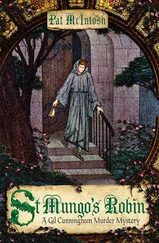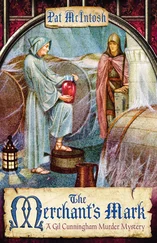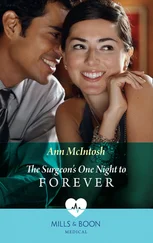Pat McIntosh - The Harper's Quine
Здесь есть возможность читать онлайн «Pat McIntosh - The Harper's Quine» весь текст электронной книги совершенно бесплатно (целиком полную версию без сокращений). В некоторых случаях можно слушать аудио, скачать через торрент в формате fb2 и присутствует краткое содержание. Жанр: Исторический детектив, на английском языке. Описание произведения, (предисловие) а так же отзывы посетителей доступны на портале библиотеки ЛибКат.
- Название:The Harper's Quine
- Автор:
- Жанр:
- Год:неизвестен
- ISBN:нет данных
- Рейтинг книги:5 / 5. Голосов: 1
-
Избранное:Добавить в избранное
- Отзывы:
-
Ваша оценка:
- 100
- 1
- 2
- 3
- 4
- 5
The Harper's Quine: краткое содержание, описание и аннотация
Предлагаем к чтению аннотацию, описание, краткое содержание или предисловие (зависит от того, что написал сам автор книги «The Harper's Quine»). Если вы не нашли необходимую информацию о книге — напишите в комментариях, мы постараемся отыскать её.
The Harper's Quine — читать онлайн бесплатно полную книгу (весь текст) целиком
Ниже представлен текст книги, разбитый по страницам. Система сохранения места последней прочитанной страницы, позволяет с удобством читать онлайн бесплатно книгу «The Harper's Quine», без необходимости каждый раз заново искать на чём Вы остановились. Поставьте закладку, и сможете в любой момент перейти на страницу, на которой закончили чтение.
Интервал:
Закладка:
‘And his lady?’ said Gil, half at random, fascinated by her manner. She was dressed like a merchant’s daughter, in well-cut brown linen faced with velvet, and she was clearly under twenty, but she spoke to him as directly as she looked, with none of the archness or giggling he had encountered in other girls of her class. Moreover, she was tall enough to look nearly level at him from the next step up. What was that poem some King of Scots wrote in captivity? The fairest or the freschest yong flower That ever I saw, me thocht, before that hour. It seemed to fit.
‘Lady Stewart had to stay,’ she acknowledged. ‘I thought she was wearying by the end of the afternoon.’
She spoke good Scots with a slight accent which Gil was still trying to place when there was a disturbance beyond the Tolbooth, and the crowd parted to make way for three extraordinary figures. First to emerge was a sweet-faced woman in a fashionably cut dull red gown and a newfangled French hood, who carried a harper’s chair. After her came another woman, tall and gaunt, her black hair curling over her shoulders, pacing like a queen across the paved market-place in the loose checked dress of a Highlander. In one arm she clasped a harp, and on the other she led a man nearly as tall as Gil. He wore a rich gown of blue cloth, in which he must have been uncomfortably warm, a gold chain, and a black velvet hat with a sapphire in it. Over chest and shoulders flowed long white hair and a magnificent beard. At the sight a child on its father’s shoulders wailed, ‘Set me down, Da, it’s God the Faither! He’ll see me!’
The harper was guided up the Tolbooth steps, seated himself with great dignity, accepted harp and tuning-key, and as if there was not a great crowd of people watching, launched into a formal tuning prelude.
‘How the sound carries,’ Gil said.
‘Wire strings,’ said the girl. ‘I’m surprised you haven’t heard him before. Did he not play when the King stayed with the Bishop last winter? Archbishop,’ she corrected herself.
‘My uncle mentioned a harper,’ Gil recalled.
‘I thought you would have attended him,’ she said. ‘The Official of Glasgow is important, no? He is the senior judge of the diocese? His nephew should be present to give him consequence.’
‘You know me?’ said Gil in French, suddenly placing her accent.
‘My nurse — Catherine — knows everyone,’ she answered enigmatically. ‘Hush and listen.’
The Highland woman on the Tolbooth steps was arguing with some of the crowd, apparently about what they were to sing. The other was watching the harper, who, face turned unseeing towards the Waulkergait, continued to raise ripples of sound from the shining strings. Suddenly he silenced the instrument with the flat of his hand, and with a brief word to the women began to play the introduction to a May ballad. They took up the tune without hesitation, the two voices echoing and answering like birds.
Gil, listening raptly, thought how strong was the rapport between the three musicians, in particular the link between the blind man and the woman in the red dress. When the song ended he turned to his companion.
‘My faith, I’ve heard worse in Paris,’ he said over the crowd’s applause.
‘You know Paris? Were you there at the University?’ she said, turning to look at him with interest. ‘What were you studying? When did you leave?’
‘I studied in the Faculty of Laws,’ he answered precisely, ‘but I had to come home a couple of years since — at the end of ‘89.’
‘Of course,’ she said with ready understanding, ‘the Cunninghams backed the old King in ‘88. Were all the lands forfeit since the battle? Are you left quite penniless?’
‘Not quite,’ he said stiffly, rather startled by the breadth of her knowledge. She gave him a quick apologetic smile.
‘Catherine gossips. What are they playing now? Aren’t they good? It is clear they are accustomed to play together.’
The Highlander woman had coaxed the taborer’s drum from him, and was tapping out a rhythm. The other woman had begun to sing, nonsense syllables with a pronounced beat, her eyes sparkling as she clapped in time. Some of the crowd were taking up the clapping, and the space before the Tolbooth was clearing again.
‘Will you dance?’ Gil offered, to show that he had not taken offence. The apologetic smile flashed again.
‘No, I thank you. Catherine will have a fit when she finds me as it is. Oh, there is Davie-boy.’ She nodded at the two youngsters Gil had been watching earlier. ‘I see he has been at the May-games. He is one of my father’s men,’ she explained.
The dancers had barely begun, stepping round and back in a ring to the sound of harp, tabor and voice, when there was shouting beyond the Tolbooth, and two men in helmets and quilted jacks rode round the flank of the Laigh Kirk.
‘Way there! Gang way there!’
The onlookers gave way reluctantly, with a lot of argument. More horsemen followed, well-dressed men on handsome horses, and several grooms. Satin and jewels gleamed. The cavalcade, unable to proceed, trampled about in the mouth of the Thenawgait, with more confused shouting.
‘Who is it?’ wondered Gil’s companion, standing on tiptoe to see better.
‘You mean Catherine did not expect them?’ he asked drily. ‘That one on the roan horse is some kind of kin of mine by marriage, more’s the pity — John Sempill of Muirend. He must have sorted out his little difficulty about Paisley Cross. That must be his cousin Philip behind him. Who the others might be I am uncertain, though they look like Campbells, and so do the gallowglasses. Oh, for shame!’
The men-at-arms had broken through the circle of onlookers into the dancing-space, and were now urging their beasts forward. The dancers scattered, shouting and shaking fists, but the rest of the party surged through the gap and clattered across the paving-stones to turn past the Tolbooth and up the High Street.
Immediately behind the men-at-arms rode Sempill of Muirend on his roan horse, sandy-haired in black velvet and gold satin, a bunch of hawthorn pinned in his hat with an emerald brooch, scowling furiously at the musicians. After him, the pleasant-faced Philip Sempill seemed for a moment as if he would have turned aside to apologize, but the man next him caught his bridle and they rode on, followed by the rest of the party: a little sallow man with a lute-case slung across his back, several grooms, one with a middle-aged woman behind him, and in their midst another groom leading a white pony with a lady perched sideways on its saddle. Small and dainty, she wore green satin trimmed with velvet, and golden hair rippled down her back beneath the fall of her French hood. Jewels glittered on her hands and bosom, and she smiled at the people as she rode past.
‘Da!’ said the same piercing little voice in the crowd. ‘Is that the Queen of Elfland?’
The lady turned to blow a kiss to the child. Her gaze met Gil’s, and her expression sharpened; she smiled blindingly and blew him a kiss as well. Puzzled and embarrassed, he glanced away, and found himself looking at the harper, whose expressionless stare was aimed at the head of the procession where it was engaged in another argument about getting into the High Street. Beside him, the tall woman in the checked gown was glaring malevolently in the same direction, but the other one had turned her head and was facing resolutely towards the Tolbooth. What has Sempill done to them? he wondered, and glancing at the cavalcade was in time to see Philip Sempill looking back at the little group on the steps as if he would have liked to stay and listen to the singing.
‘Who is she?’ asked Gil’s companion. ‘Do you know her?’
‘I never saw her before.’
Читать дальшеИнтервал:
Закладка:
Похожие книги на «The Harper's Quine»
Представляем Вашему вниманию похожие книги на «The Harper's Quine» списком для выбора. Мы отобрали схожую по названию и смыслу литературу в надежде предоставить читателям больше вариантов отыскать новые, интересные, ещё непрочитанные произведения.
Обсуждение, отзывы о книге «The Harper's Quine» и просто собственные мнения читателей. Оставьте ваши комментарии, напишите, что Вы думаете о произведении, его смысле или главных героях. Укажите что конкретно понравилось, а что нет, и почему Вы так считаете.


